BAGHDAD - There are two lines of tape, one green and one red. Behind the red tape is a Soldier contaminated by a hazardous material. The Iraqi firefighters only have minutes to react, carefully moving the casualty, to the other side of the green tape, while at the same time remembering to clean from their own hands and suits' hazardous material.
It's up to the 425th Civil Affairs Battalion to show the Iraqi firemen the proper way to treat patients exposed to hazardous materials, while at the same setting up a decontamination site.
"Our goal is to limit the spread of contamination," Pfc. Daniel Oubre, a chemical specialist assigned to Company A, 110th Chemical Battalion, Technical Escort Unit, tells a class of Iraqi firefighters at the Iraqi Civil Defense Directorate, here, July 26. "By the end of this week, the firefighters will be able to set up, run and break down a decontamination site."
Another Soldier, Sgt. Michael Kuca, dressed in a puffy white decontamination suit and lays down on a stretcher, simulating a firefighter whose suit has torn, exposing him to hazardous materials. Staff Sgt. Gregory Lowe, of Lisbon Falls, Maine, a chemical specialist assigned to Company A, 110th Chemical Battalion, Technical Escort Unit and Oubre demonstrate the proper way to decontaminate Kuca by carefully folding the hood and sleeves of his suit so any solid or liquid contaminants pour away and then gently cut away the suit from his body. On the count of three, Lowe and Oubre lift Kuca's stretcher and carry him across the green tape - which marks the decontaminated area.
Kuca is a civil affairs specialist assigned to 425th Civil Affairs Battalion, 364th Civil Affairs Brigade, 1st Cavalry Division. Kuca's civil affairs unit has taken on the task of training Iraqi firefighters in a combat zone. Sgt. Maj. Garren Fulmer, a fire and emergency services advisor assigned to the 425th CA Bn., 364th CA Bde., 1st Cav. Div., said the team was assembled together with civil affairs and chemical Soldiers, with the blessing and support of Multi-National Division-Baghdad.
"This is the best mission in Baghdad," said Fulmer, who hails from Las Vegas. "My whole job the last seven months is to tell MND-B that fire exists and they need our help. I'm a strategic-level cheerleader."
The firefighters at the Iraqi Civil Defense Directorate have been unpaid volunteers for years, but are training as national firefighters, trained in all aspects of fire and rescue, said Fulmer. He said the program is designed to be "self-replicating."
"These are all 'train the trainer' classes," said Fulmer, an Army Reserve Soldier who has been a professional firefighter for 18 years. "Everybody who takes the class is expected to be able to train others at the same level."
The training at the Iraqi Civil Defense Directorate includes fire officer development, basic emergency medical technician, urban search and rescue, fire mechanics class and incident command systems. Hazardous materials handling is the most recent part of the training.
With help from a Provincial Reconstruction Team, Fulmer said his civil affairs team is able to train the Iraqis 40 at a time, for two months, without asking for any money from the Army.
"They tell us what they need and Kuca and I get the assets. If they don't have it, we find out who does," Fulmer said. "We are building capacity every day and we are doing it for free."
Fulmer said he is confident in the Iraqi firefighters he helped train.
"I would hire them back in the states. The students we've had are good people and they do well with the instruction," said Fulmer.
As Coalition forces continue to drawdown, they are leaving behind not only a more self-sufficient Iraqi military, but a more self-sufficient and highly-trained public safety agency.
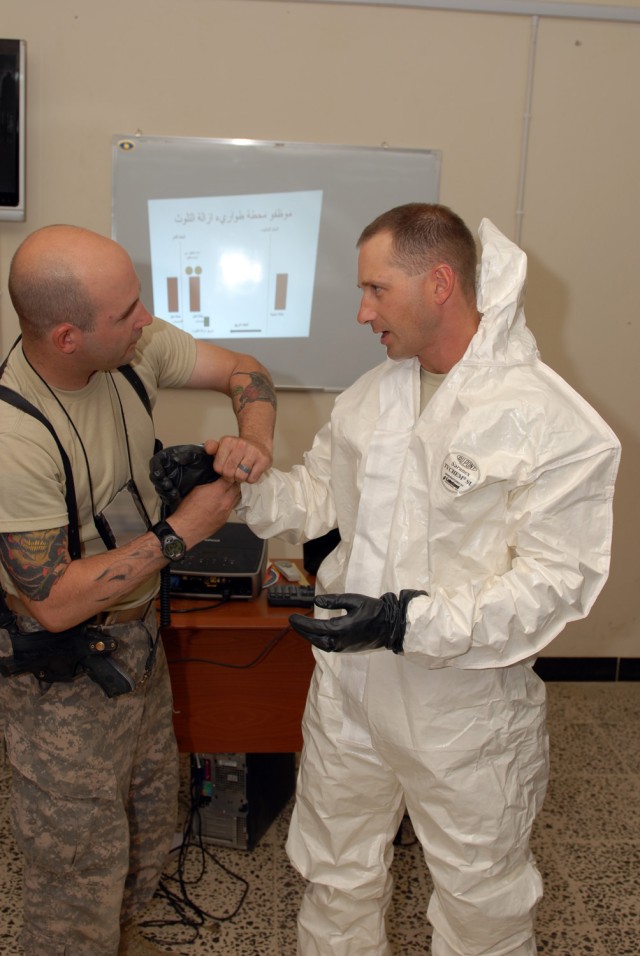
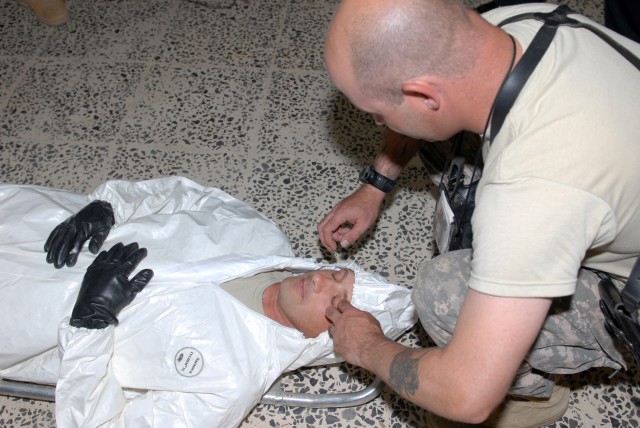
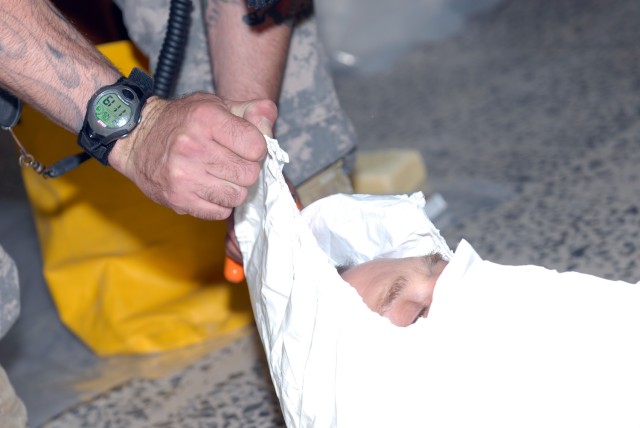
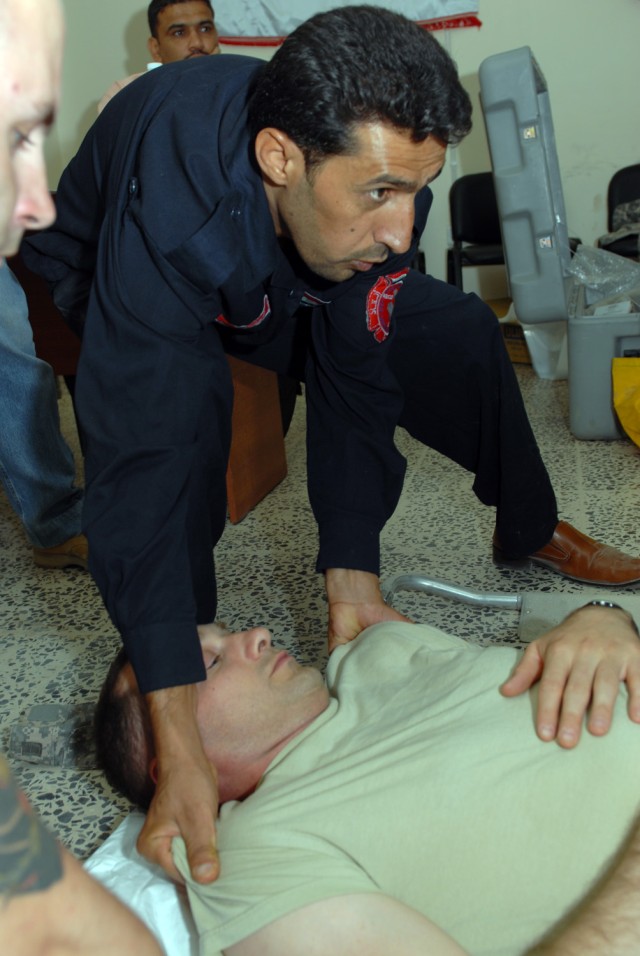
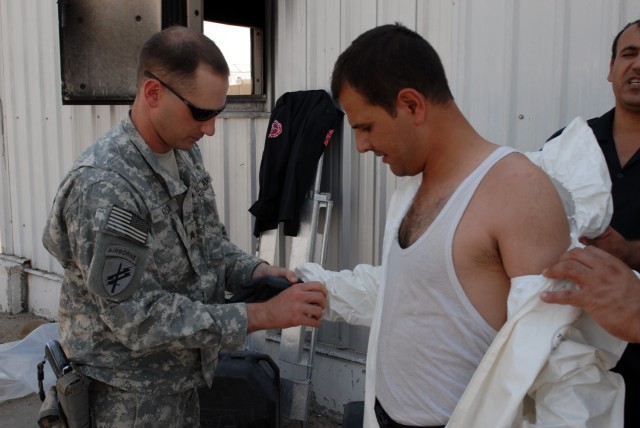
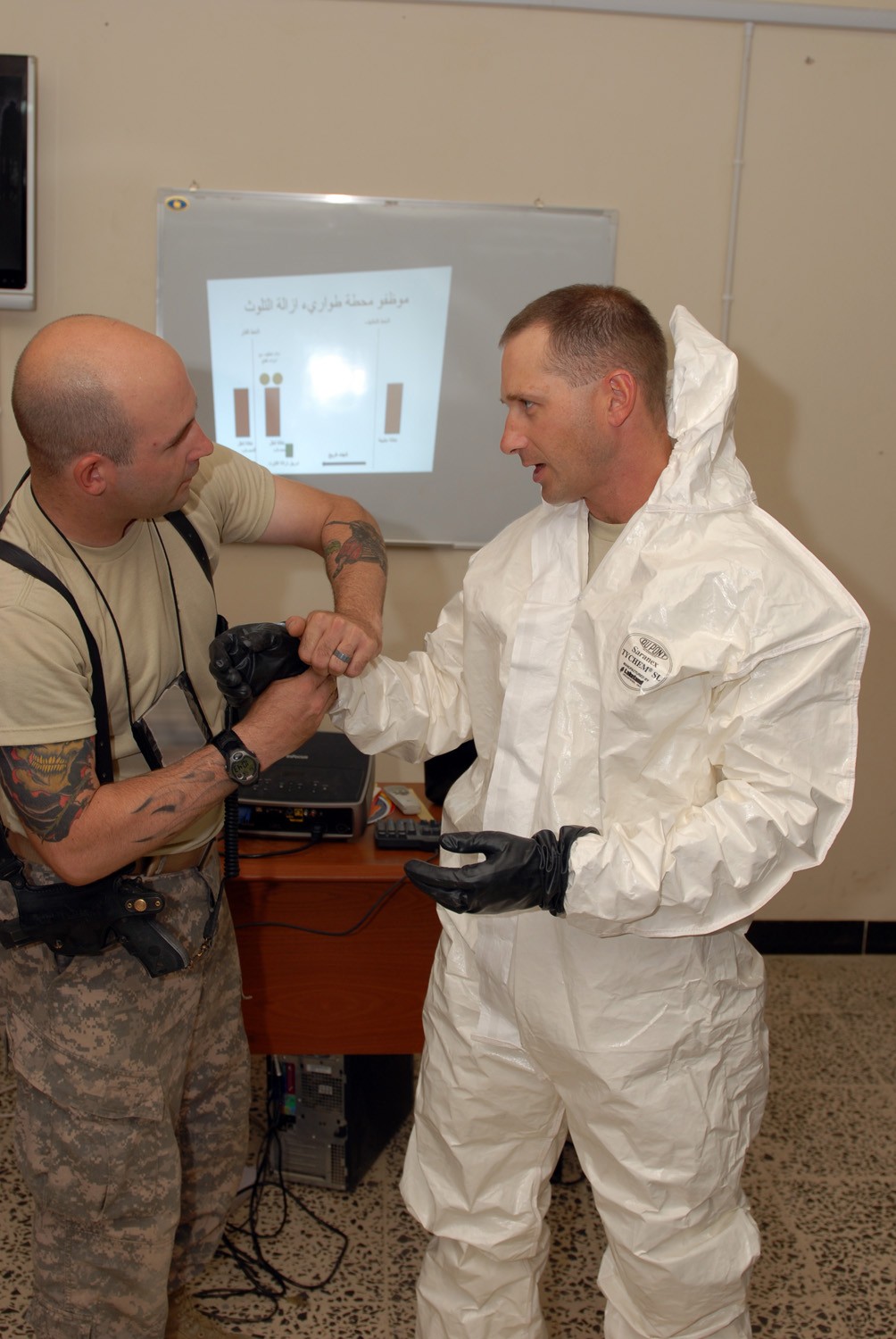
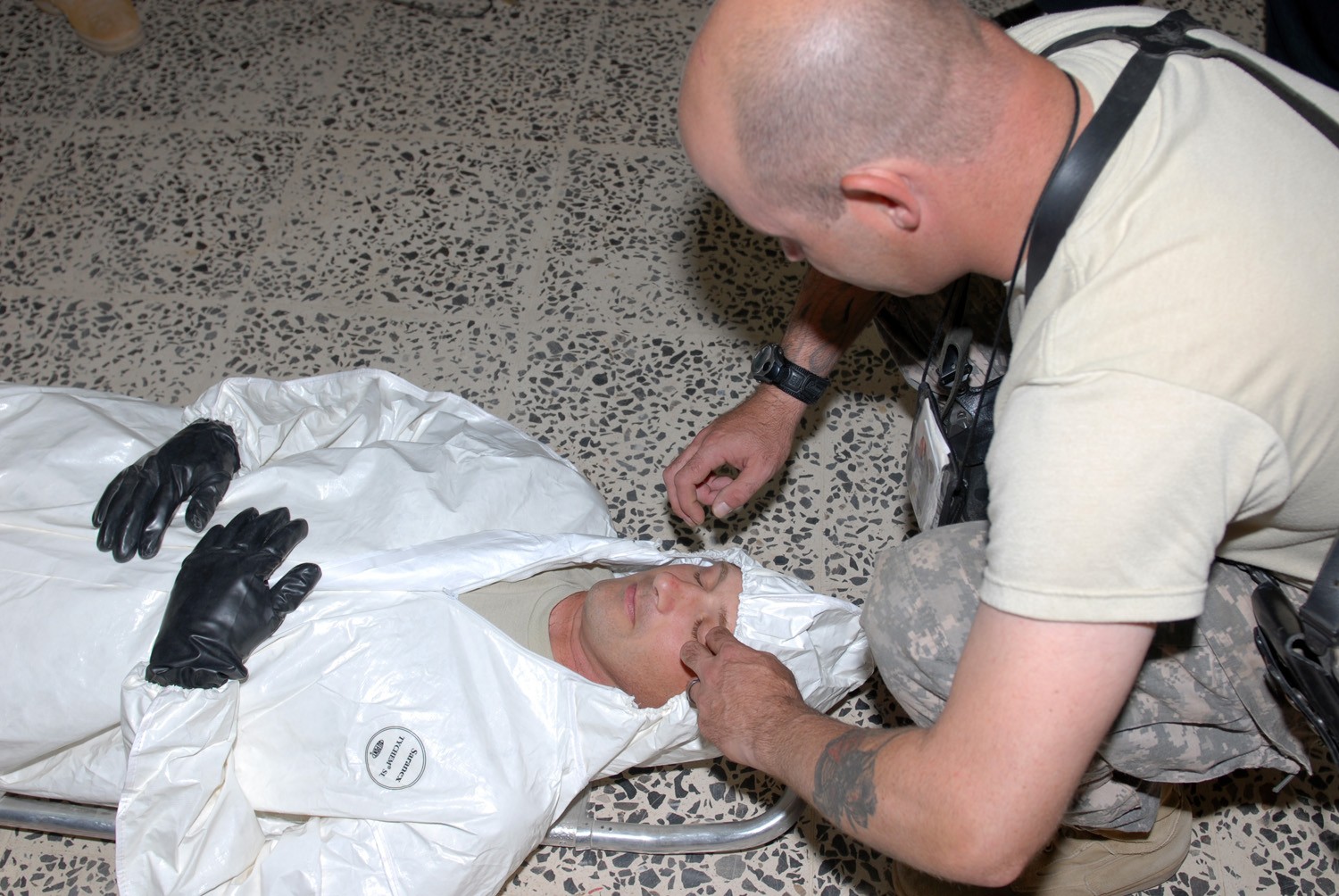
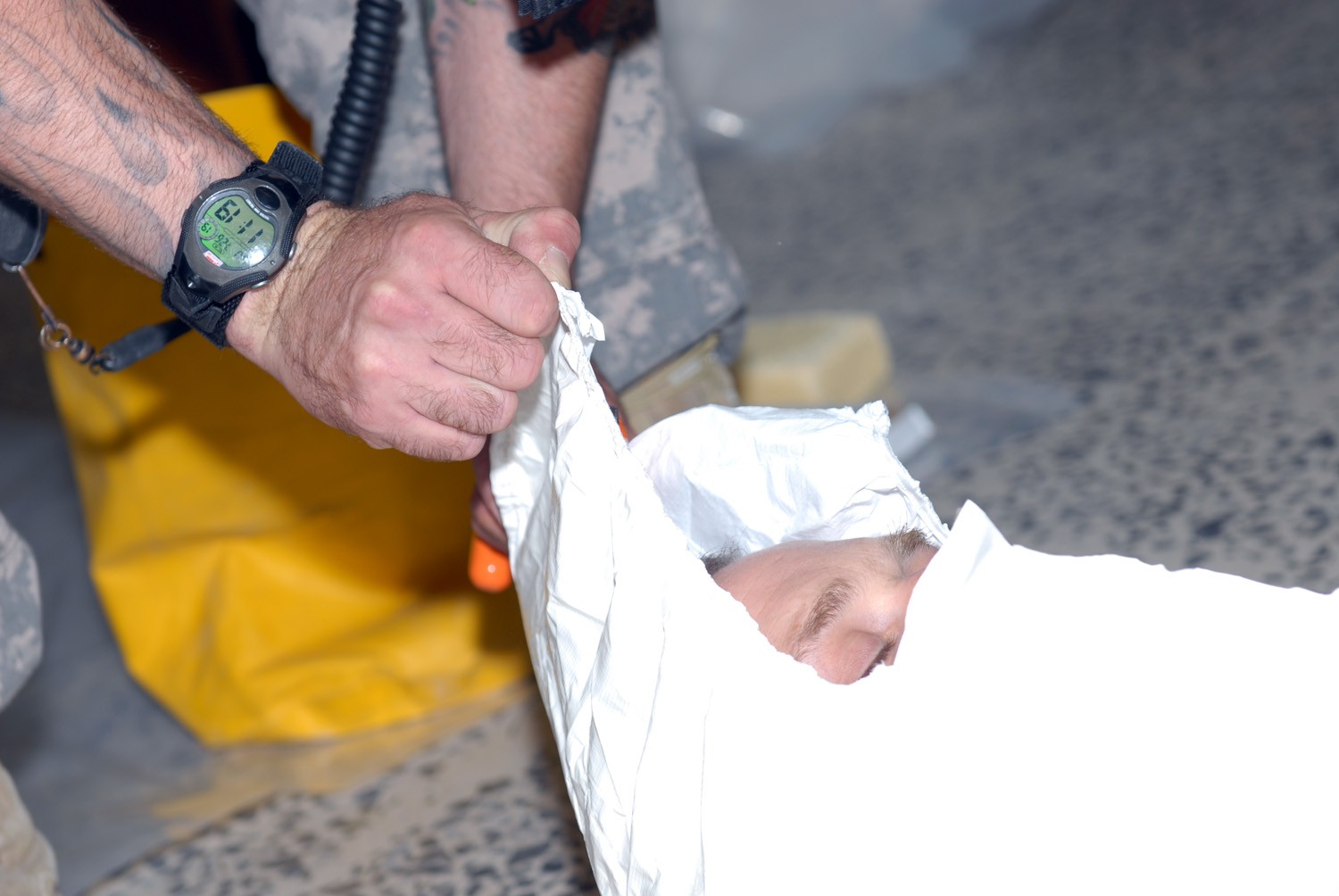
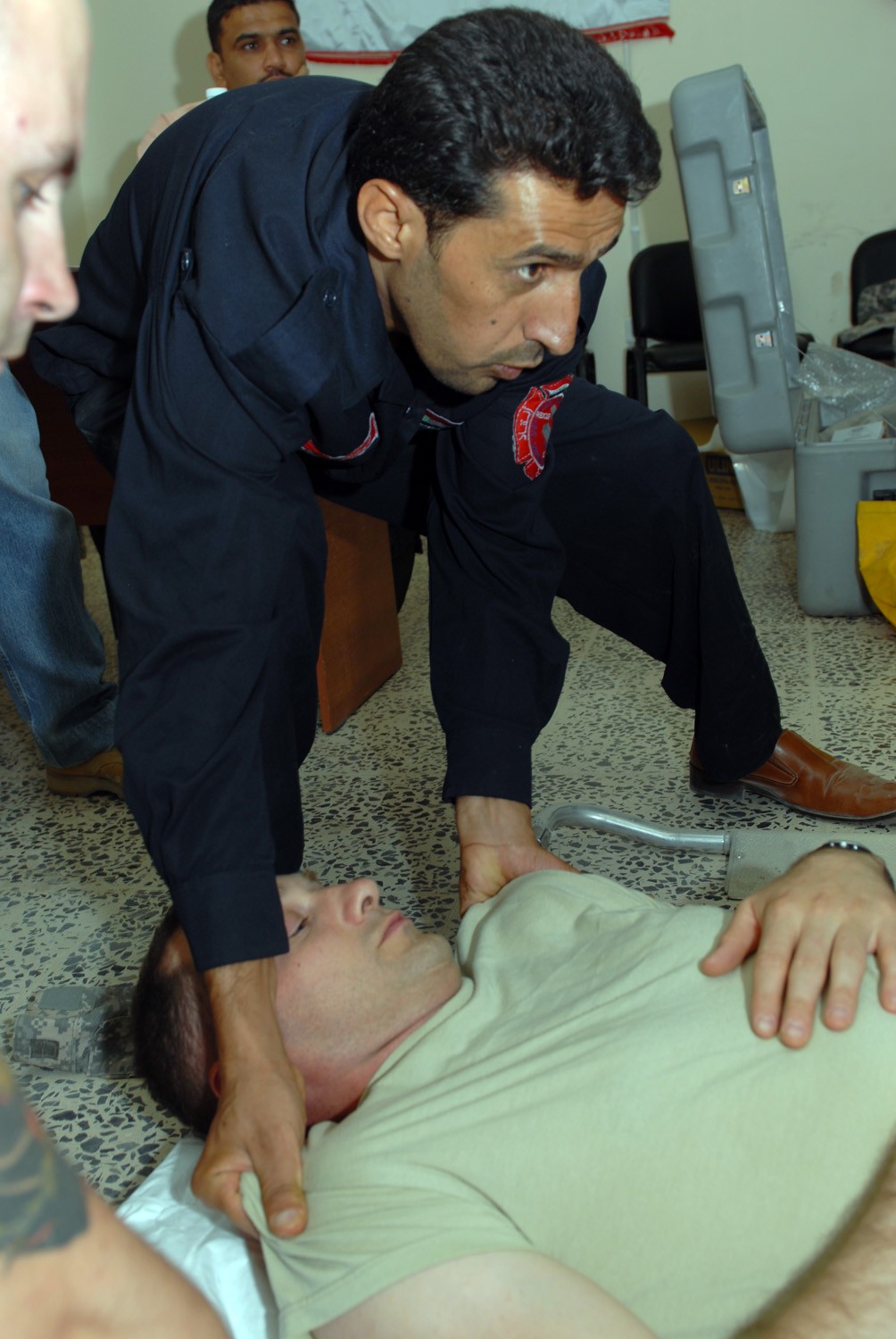
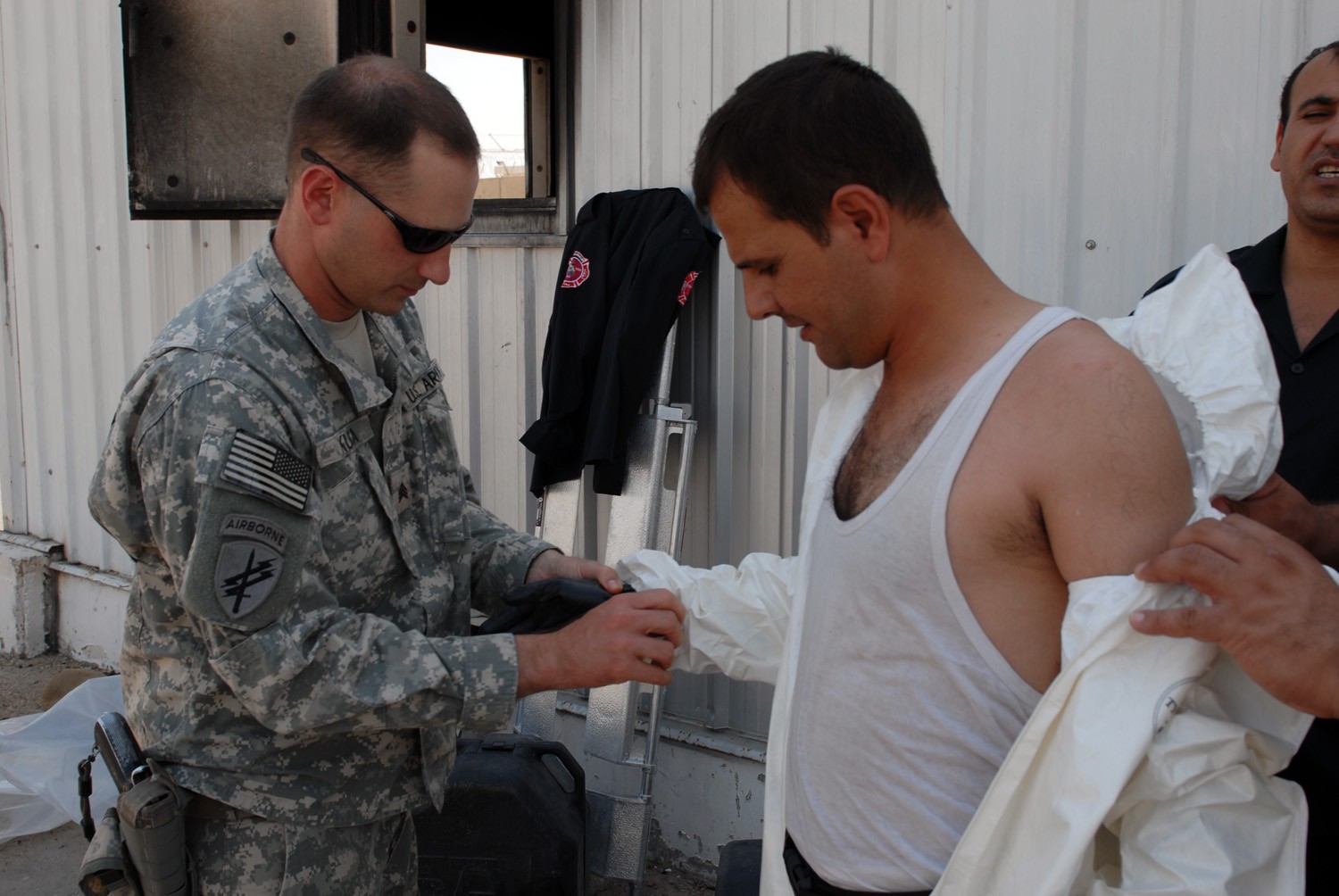
Social Sharing